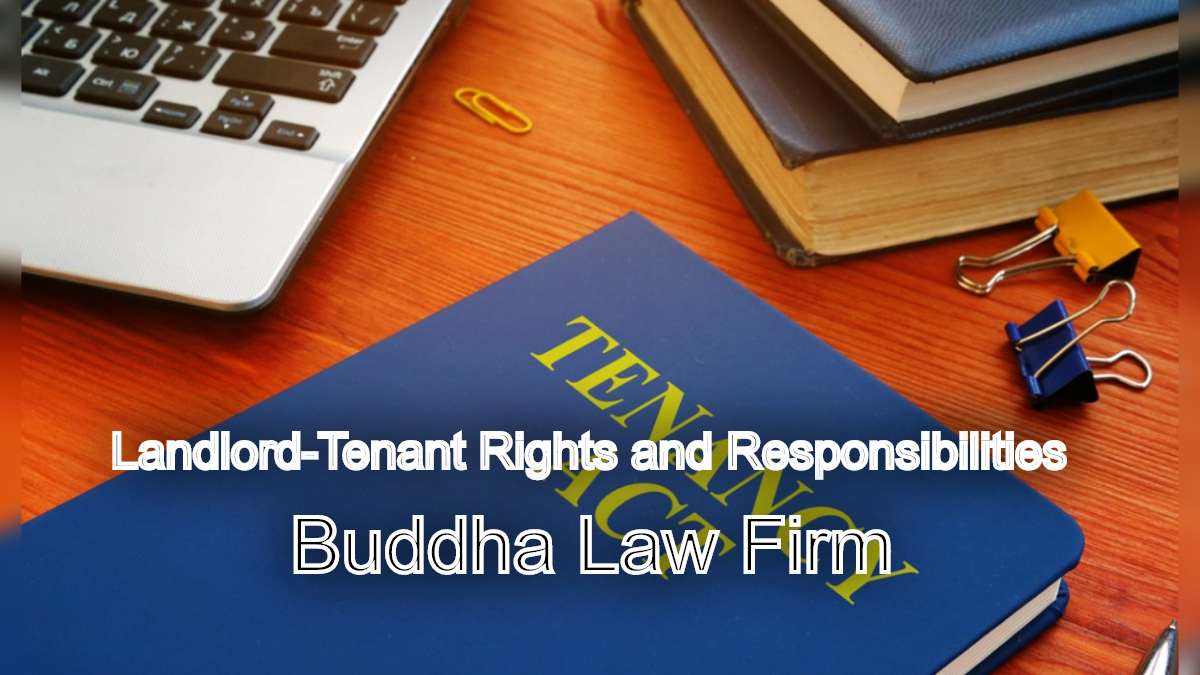Residential Lease Agreements: Tips for Tenants and Landlords
Landlord-Tenant Rights and Responsibilities: A Guide for Residential Tenants and Property Owners - Buddha Law Firm
Understanding the Landlord-Tenant Relationship
The relationship between a landlord and tenant is governed by a legal agreement, typically a lease or rental agreement. This agreement outlines the rights and responsibilities of both parties. At Buddha Law Firm, we specialize in landlord-tenant law and can provide expert legal advice to ensure that your rights are protected.

Tenant Rights
As a tenant, you have certain rights that are protected by law. These include:
- Habitability: Your landlord is responsible for providing a habitable living space, free from major defects that could pose a health or safety hazard.
- Quiet Enjoyment: You have the right to enjoy your rental property without unreasonable interference from your landlord or other tenants.
- Security Deposit: Your landlord is required to hold your security deposit in a separate account and return it to you at the end of your tenancy, minus any deductions for damages or unpaid rent.
- Privacy: Your landlord generally cannot enter your rental property without your consent, except in certain limited circumstances, such as to make necessary repairs or address emergencies.
Tenant Responsibilities
In addition to your rights, you also have certain responsibilities as a tenant. These include:
- Rent Payment: You are responsible for paying your rent on time, in accordance with the terms of your lease.
- Care of the Property: You must care for the property and avoid causing damage.
- Compliance with Lease Terms: You must comply with all other terms and conditions of your lease.
Landlord Rights and Responsibilities
As a landlord, you have the right to:
- Rent Payment: Receive timely rent payments from your tenants.
- Security Deposit: Collect a security deposit to protect your property from damage.
- Access to the Property: Access the property for inspections, repairs, or showings.
- Eviction: Evict tenants who violate the terms of their lease or fail to pay rent.
You also have certain responsibilities, including:
- Habitability: Providing a habitable living space for your tenants.
- Quiet Enjoyment: Ensuring that tenants can enjoy their rental property without unreasonable interference.
- Security Deposit: Holding the security deposit in a separate account and returning it to tenants at the end of their tenancy.
Why Choose Buddha Law Firm?
At Buddha Law Firm, we have extensive experience in landlord-tenant law. Our team of attorneys can provide expert legal advice and representation to protect your rights and interests. We can assist with:
- Lease Review: Reviewing and negotiating lease agreements.
- Dispute Resolution: Resolving disputes between landlords and tenants.
- Eviction Proceedings: Representing landlords in eviction proceedings.
- Tenant Rights Protection: Protecting tenant rights and addressing landlord violations.
Read More
- Expert Personal Injury Attorneys: Compassionate Representation for Your Case
- Divorce Mediation vs. Litigation: Which Option is Right for You?
- Defending Against DUI Charges: Strategies and Legal Options
- Expert Litigation Services in Chennai: Empower Your Legal Battle
- The Home Buying Process Demystified: Legal Considerations for First-Time Buyers
- National Legal Services Authority (NALSA):
Contact Us Today
If you have questions or require legal advice related to landlord-tenant law, please don't hesitate to contact Buddha Law Firm. Our team is dedicated to providing exceptional legal services and ensuring that your rights are protected.